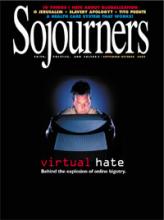"The battle in Seattle" stirred worldwide concern about the impact of the new global economy on our poorest neighbors and the environment. An international coalition of environmentalists, labor union leaders, citizen activists, and church leaders has come together (with the help of the Internet) to challenge the agendas of the World Trade Organization.
But many peace and justice Christians who are a part of this new coalition are still focused on the issues of the 1970s and ’80s. In the ’90s we moved into a new neighborhood, and few in the church seemed to have noticed.
When the Berlin Wall came down and the Soviet Union imploded, virtually every nation on earth joined the free-market race to the top. Overnight we have become a part of a one-world economic order. This global boom economy raises issues regarding its impact on workers, sweatshops, and escalating environmental damage, but also a host of new issues that will require imaginative responses.
Money Central. A review of our history books reminds us of the dangers we have faced from those intent on political centralization. But we have never been a part of a global economic order before. In economic centralization, domination is the name of the game. As Michael Quinlan, chairman of the board of McDonald’s, declares, "I am open to any course that helps McDonald’s dominate every market."
Through aggressive expansion and mergers, transnational corporations are achieving domination of their global markets. Power is concentrated in the hands of fewer and fewer global corporations as these behemoths mate and merge. This is likely to seriously undercut the future of representational government.
Read the Full Article

